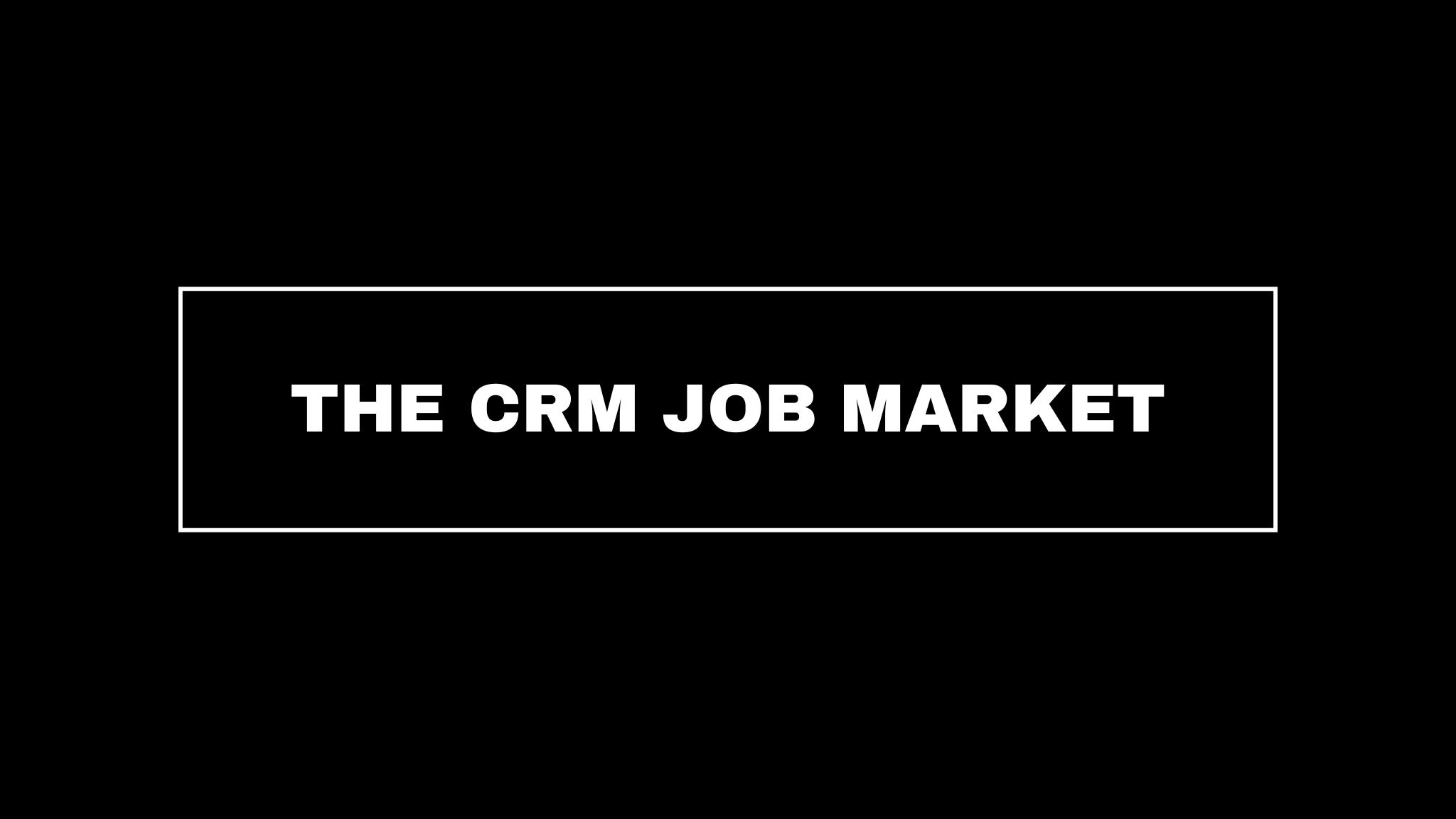I’ve watched countless CRM professionals struggle with this exact dilemma. They have the technical skills but can’t seem to break through to the next level. They’re stuck scrolling through endless job boards like Indeed and LinkedIn, competing against thousands of other candidates for the same positions. And when they do find opportunities that seem perfect, they disappear into the void of applicant tracking systems.
The truth is, staying competitive in today’s CRM career landscape requires more than just knowing Salesforce or HubSpot inside and out. It demands a strategic approach to professional development, networking, and positioning yourself as the candidate companies can’t ignore.
Understanding the Modern CRM Professional Landscape
The CRM industry has evolved dramatically over the past few years. What started as simple contact management has transformed into sophisticated customer experience orchestration. Marketing automation, artificial intelligence, and predictive analytics have become standard expectations rather than nice-to-have features. This evolution means CRM professionals need to constantly adapt their skill sets to remain relevant.
But here’s what many don’t realize: technical skills alone won’t guarantee career advancement. According to industry reports, employers increasingly value professionals who can bridge the gap between technology and business strategy. They want CRM experts who understand not just how to configure workflows, but why those workflows matter to the bottom line.
The challenge becomes even more complex when you consider that most learning resources come from technology vendors themselves. While these resources are valuable, they often carry inherent bias toward specific platforms or approaches. This creates a knowledge gap that many professionals struggle to fill independently.
Building Your CRM Skill Foundation
Successful CRM career advancement starts with developing a comprehensive skill set that goes beyond platform-specific knowledge. Think of it as building a house – you need a solid foundation before you can add the specialized features that make you unique.
Data analysis capabilities have become non-negotiable in modern CRM roles. You need to understand how to interpret customer behavior patterns, measure campaign effectiveness, and translate metrics into actionable insights. But don’t worry if this sounds overwhelming – these skills can be developed systematically with the right approach and resources.
Strategic thinking represents another crucial competency. Companies want CRM professionals who can align technology initiatives with business objectives. This means understanding how customer lifecycle management impacts revenue, how segmentation strategies affect conversion rates, and how automation can improve operational efficiency without sacrificing personalization.
Communication skills often get overlooked, but they’re absolutely critical for CRM career success. You’ll need to explain complex technical concepts to non-technical stakeholders, present ROI projections to executives, and collaborate with cross-functional teams including sales, marketing, and customer service.
Networking Strategies That Actually Work
Traditional networking advice tells you to attend industry conferences and connect with people on LinkedIn. While these activities have their place, they’re not enough in today’s competitive environment. You need to build genuine relationships with other CRM professionals who understand your challenges and can provide unbiased guidance.
The most successful CRM professionals I know have cultivated networks of peers who share knowledge, discuss industry trends, and alert each other to opportunities before they’re publicly posted. These relationships often prove more valuable than any single certification or training program.
Consider joining specialized communities where you can engage in meaningful discussions about CRM challenges and solutions. Look for groups that aren’t sponsored by specific technology vendors – you want honest conversations about what works and what doesn’t, not sales pitches disguised as education.
Peer mentorship can accelerate your career development in ways that formal training programs simply can’t match. When you connect with experienced professionals who’ve navigated similar challenges, you gain insights that textbooks and online courses can’t provide.
Standing Out in a Crowded Job Market
The days of simply submitting your resume and hoping for the best are long gone. Today’s competitive CRM job market requires a more strategic approach to positioning yourself as the ideal candidate.
Start by developing a portfolio that demonstrates your impact, not just your responsibilities. Instead of listing “managed Salesforce implementation,” show how your implementation improved lead conversion rates by a specific percentage or reduced sales cycle length by a measurable amount.
Thought leadership can set you apart from other candidates. Share insights about CRM trends, write about challenges you’ve solved, or contribute to industry discussions. This doesn’t mean you need to become a full-time content creator – even occasional, thoughtful contributions can establish your expertise.
Consider pursuing certifications strategically rather than collecting them randomly. Focus on credentials that align with your career goals and the specific roles you’re targeting. Multiple platform certifications might seem impressive, but deep expertise in relevant areas often proves more valuable.
Leveraging Professional Development Resources
Continuous learning isn’t optional in the CRM field – it’s essential for survival. But with so many training options available, knowing where to invest your time and money can feel overwhelming.
Look for learning opportunities that provide practical, hands-on experience rather than just theoretical knowledge. The best professional development programs combine technical training with real-world application and peer interaction.
Avoid relying solely on vendor-provided training materials. While these resources offer valuable platform-specific knowledge, they often lack the broader perspective you need to make strategic decisions. Seek out educational opportunities that provide unbiased insights into industry best practices and emerging trends.
Consider the value of community-driven learning where you can discuss challenges with peers, share solutions, and learn from others’ experiences. This collaborative approach often leads to deeper understanding than traditional classroom-style instruction.
Your Path to CRM Career Success
Staying competitive in the CRM job market requires a multifaceted approach that combines skill development, strategic networking, and continuous learning. The professionals who thrive are those who take proactive steps to differentiate themselves rather than simply hoping their technical knowledge will be enough.
We created CRMPeeps specifically to address the challenges that CRM professionals face in advancing their careers. Our platform provides the unbiased resources, networking opportunities, and professional development tools you need to stand out in today’s competitive job market.
Ready to take your CRM career to the next level? Join CRMPeeps today and connect with a community of professionals who are committed to helping each other succeed. Don’t let another opportunity pass you by – your career advancement starts now.
Frequently Asked Questions
What are the most important skills for CRM career advancement?
The most valuable skills combine technical expertise with business acumen. Focus on data analysis, strategic thinking, and communication skills alongside platform-specific knowledge. Understanding how CRM initiatives impact business outcomes is increasingly important for career advancement.
How can I network effectively with other CRM professionals?
Look for specialized communities and peer groups that focus specifically on CRM rather than general business networking events. Engage in meaningful discussions, share your experiences, and build genuine relationships rather than simply collecting contacts. Quality connections matter more than quantity.
What’s the best way to stand out when applying for CRM positions?
Demonstrate measurable impact rather than just listing responsibilities. Create a portfolio that shows how your work improved business metrics, and consider developing thought leadership content that establishes your expertise. Focus on quality applications to relevant positions rather than mass-applying to every opening.



